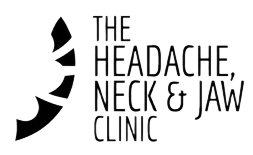There is an overlap between cervical spine trauma and Post-Concussion Syndrome (PCS) due to the interconnected nature of the head, neck, and central nervous system. Here are some key points that highlight the relationship and potential overlap between these two conditions:
Mechanism of Injury
Both cervical spine trauma and concussions can result from similar mechanisms of injury, particularly in cases of motor vehicle accidents, falls, or sports-related incidents. The force or impact that leads to a concussion can also affect the cervical spine.
Symptoms
There can be an overlap in symptoms between cervical spine trauma and PCS, making it challenging to distinguish between the two. These shared symptoms can include headache, neck pain, dizziness, brain fog and cognitive difficulties.
Concussion-Related Neck Pain
In some cases, individuals with concussions can experience neck pain due to muscle tension and strain resulting from the injury. This neck pain may mimic symptoms associated with cervical spine trauma.
Vestibular Dysfunction
Vestibular issues, often present in PCS, can lead to balance and spatial orientation problems. These symptoms can be influenced by cervical spine alignment and function, as they are closely linked to head movements and posture.
Treatment Considerations
When managing individuals with both cervical spine trauma and PCS, healthcare professionals must consider the potential interactions between the two conditions. Treatment strategies may need to address both the head injury and the neck-related issues.
Diagnostic Challenges
It can be challenging to differentiate between symptoms arising from PCS and those resulting from cervical spine trauma. Comprehensive diagnostic evaluations are often necessary to assess both conditions thoroughly.
Multidisciplinary Care
Due to the potential overlap and complexity of symptoms, a multidisciplinary approach is often required for diagnosis and treatment. This may involve collaboration between neurologists, orthopaedic specialists, physiotherapists, and other healthcare professionals.
Recovery Management
Proper management of both conditions is essential to ensure a safe and successful recovery. This includes rest, rehabilitation, and gradual return to activities.
In cases of suspected cervical spine trauma and PCS, healthcare providers must conduct thorough evaluations and consider both conditions in their diagnosis and treatment plans. The overlap between these conditions underscores the importance of comprehensive care and a tailored approach to address the unique needs of each individual. It is crucial to seek guidance from medical professionals experienced in managing both concussions and cervical spine injuries to ensure the best possible outcomes for those affected.
Learn more about Concussion treatment options and how an expert concussion physiotherapist can help with your symptoms and recovery.

